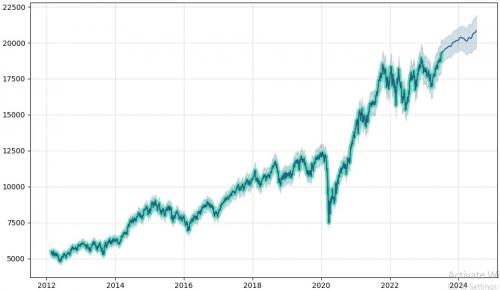Tips for NIFTY futures trading

Welcome to the exciting world of NIFTY futures trading! If
you're looking to venture into the fast-paced and dynamic realm of stock market
investments, then understanding NIFTY futures is a great place to start.
Whether you're a seasoned trader or just dipping your toes in the financial
waters, this blog post will demystify NIFTY futures and provide you with
valuable tips on how to navigate this exhilarating market. So grab your pen,
buckle up, and let's dive into the world of NIFTY futures trading!
Getting started with
NIFTY
If you're new to the world of stock market trading, getting
started with NIFTY can seem overwhelming at first. But fear not! We're here to
guide you through the process.
First things first, what exactly is NIFTY? Well, it stands
for National Stock Exchange Fifty and represents the top 50 companies listed on
the NSE in India. These companies come from various
sectors such as banking, IT, pharmaceuticals, and more.
To get started with NIFTY trading, you'll need a few
essentials. Open a demat account with a registered broker who deals in futures
trading. This will enable you to buy and sell NIFTY futures contracts. Next
comes the research phase - familiarize yourself with market trends, study
technical analysis tools like charts and indicators, and keep an eye on
macroeconomic factors that may impact NIFTY.
Once you have gathered enough knowledge about NIFTY and are
confident in your understanding of market dynamics, it's time to develop a
trading strategy. Determine your risk appetite and set realistic goals for
yourself. Remember that consistency is key in this field.
Never forget the importance of continuous learning. Stay
updated with financial news, attend webinars or seminars conducted by industry
experts, read books written by successful traders – all these efforts will help
refine your skills as a trader!
With these initial steps under your belt, you're now ready
to embark on your journey into the thrilling world of NIFTY futures trading! So
buckle up tight because there's plenty more excitement ahead!
Demystifying NIFTY
futures
NIFTY futures trading can seem complex and intimidating to
beginners. However, by understanding the basics, you can navigate this market
with confidence.
What is NIFTY? It is an index that represents the
performance of the top 50 companies listed on the National Stock Exchange (NSE)
in India. Trading NIFTY futures involves buying or selling contracts based on
the future value of this index.
One important aspect to understand is that NSE does not
permit physical delivery of stocks when it comes to index futures like NIFTY.
This means that traders only settle their positions in cash instead of
receiving or delivering actual shares.
To trade NIFTY futures, you need a trading account with a
registered broker who offers derivatives trading. Once you have an account, you
can start placing orders for NIFTY futures contracts through your broker's
online platform or terminal.
It's crucial for traders to analyze market trends, study
charts and indicators before entering into any trades. Technical analysis plays
a vital role here as it helps identify potential entry and exit points based on
historical price patterns and volume trends.
Risk management is another critical aspect of successful
trading. Setting stop-loss orders and adhering to them can help limit your
losses if the market moves against your position.
Demystifying NIFTY futures requires understanding its
basics, choosing a reputable broker, conducting thorough technical analysis,
and implementing effective risk management strategies. By following these
guidelines and continuously learning from experiences in the market, traders
can increase their chances of success in trading NIFTY futures.
Trading NIFTY futures
Trading NIFTY futures can be an exciting and profitable
venture for investors. The NIFTY 50 index, which represents the performance of
India's top 50 stocks, is highly liquid and widely traded. This makes it a
popular choice among traders looking to capitalize on market movements.
To begin trading NIFTY futures, you'll need to open a
trading account with a registered broker who provides access to these
derivatives. Once you have your account set up, you can start analyzing the
market and identifying potential opportunities. Technical analysis tools such
as charts and indicators can help you make informed decisions about when to
enter or exit trades.
One advantage of trading NIFTY futures is the ability to
take both long (buy) and short (sell) positions. This means that even if the
market is trending downward, you can still profit by selling contracts at
higher prices and buying them back at lower prices.
Risk management should always be a priority when trading
NIFTY futures or any other financial instrument. Setting stop-loss orders can
help limit potential losses in case the market moves against your position.
It's also important to manage your leverage carefully to avoid excessive
risk-taking.
Successful NIFTY futures traders often develop their own
strategies based on careful analysis of historical price data, news events, and
technical indicators. However, it's crucial to remember that no strategy guarantees
success all the time - markets are inherently unpredictable.
It's recommended for beginners in NIFTY futures trading to
start small by practicing with virtual accounts or using minimal capital until
they gain confidence in their abilities. Continuous learning through books,
online resources, courses or mentorship programs can also contribute
significantly towards improving one's skills as a trader.
NIFTY futures trading
journey
NIFTY futures trading journey can be an exhilarating and
rewarding experience for those who are willing to put in the time and effort to
learn the intricacies of this market. It is a journey that starts with
understanding the basics of NIFTY, such as its composition and how it is calculated.
Once you have grasped these fundamentals, you can move on to
demystifying NIFTY futures. This involves understanding how NIFTY futures
contracts work, including their expiration dates and settlement mechanisms.
Additionally, it's crucial to familiarize yourself with key concepts like
margin requirements and contract sizes.
Trading NIFTY futures requires careful analysis of market
trends, technical indicators, and other relevant factors. Developing a robust
trading strategy is essential for success in this volatile market. Always
remember to set realistic goals and manage your risk effectively by utilizing
stop-loss orders.
As you navigate through your NIFTY futures trading journey,
it's important to stay updated with current news events that may impact the
market. Economic indicators, corporate earnings reports, and geopolitical
developments can all influence stock prices - hence affecting NIFTY futures.
Remember that consistency is key in this business. Stay
disciplined in following your trading plan and avoid letting emotions drive
your decisions. Keep learning from both successes and failures along the way -
continuous improvement will pave the path towards long-term profitability.
While every trader's journey will be unique based on their
individual experiences and strategies adopted over time; perseverance coupled
with knowledge-building will undoubtedly contribute towards achieving success
in NIFTY futures trading.
Faqs about NIFTY
futures
FAQs are a common aspect of any subject, and NIFTY futures
trading is no exception. Here are some frequently asked questions to help shed
light on this topic:
1. What is NIFTY?
NIFTY, also known as the NIFTY 50, is an index that
represents the performance of India's top 50 companies listed on the National
Stock Exchange (NSE). It serves as a benchmark for the Indian stock market.
2. What are NIFTY
futures?
NIFTY futures are standardized contracts that allow traders
to buy or sell an underlying asset (in this case, the NIFTY index) at a
predetermined price and date in the future.
3. How can I trade
NIFTY futures?
To trade NIFTY futures, you need to open an account with a
registered broker who offers derivative trading services. Once your account is
set up, you can place orders for buying or selling Nifty Futures contracts
through their online platform.
4. Is it necessary to
have prior knowledge before trading in Nifty Futures?
While having prior knowledge about stock markets and
derivatives can be beneficial, it's not mandatory to start trading in Nifty
Futures. However, gaining basic understanding and conducting thorough research
before diving into live trading is highly recommended.
5. Can I trade
SGX-Nifty Futures from overseas locations?


Comments